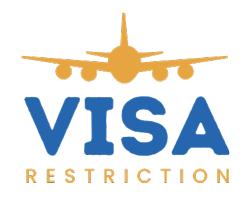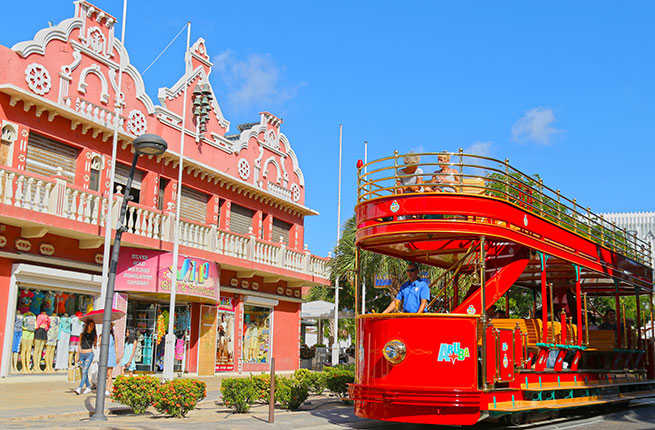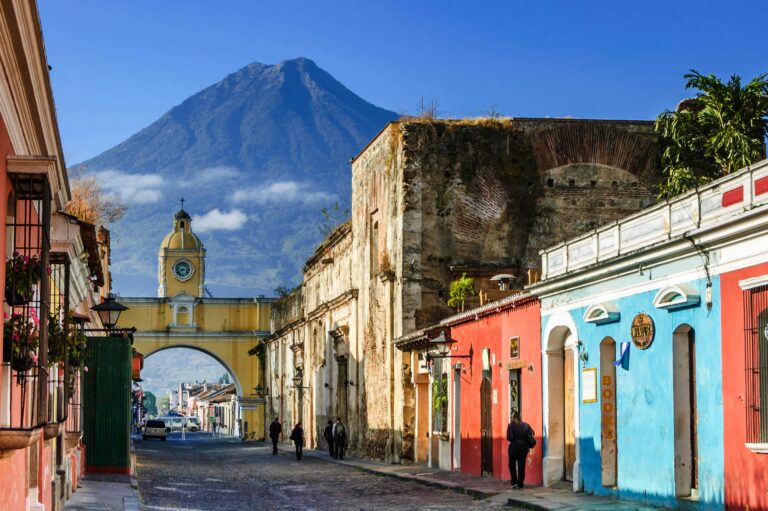Is It Safe to Travel to the Dominican Republic Now

Safety in the Dominican Republic
Overview of Travel Advisories
When considering the question, “is it safe to travel to the Dominican Republic,” it is important to look at the current travel advisories. The Dominican Republic is currently ranked at Level 2 for travel, meaning travelers should exercise increased caution. This ranking is due to concerns about violent crime, including armed robbery, homicide, and sexual assault (Travel.State.Gov).
Resort areas are generally safer and better policed compared to urban areas like Santo Domingo, where higher crime rates are attributed to factors such as the widespread availability of weapons, illicit drug use, and a weak criminal justice system. Before travel, check the latest advisories and updates to make informed decisions and take appropriate precautions.
Crime Rates and Warning Signs
Crime rates in the Dominican Republic, particularly in major cities, continue to be an issue. Violent crime, including armed robbery and homicide, occurs frequently. However, most incidents affecting tourists are opportunistic crimes such as theft and pickpocketing (Travel.gc.ca).
| Type of Crime | Common Locations | Description |
|---|---|---|
| Theft | Hotel Rooms, Cars, Airports | Includes theft from all-inclusive hotel rooms, safes, cars, and luggage. |
| Drive-by Robberies | Streets | Thieves on motorcycles or bicycles grab bags and valuables from pedestrians. |
| Petty Theft | Urban Areas | Street crime and petty theft are widespread and often involve snatching items from tourists. |
Crimes like these can occur in various locations, including checked and carry-on baggage at airports, and unattended personal items in public spaces (Travel.gc.ca). To mitigate these risks, follow recommended precautions such as:
- Leaving valuable property at home.
- Carrying cell phones in a pocket.
- Avoiding wearing headphones.
- Limiting the display of jewelry.
- Storing valuables securely in safes.
For detailed guidelines and tips on staying safe, refer to resources like CountryReports.org.
Understanding the nuances of crime and safety in the Dominican Republic can help you take the necessary steps to protect yourself during your trip. For more details on safety in other travel destinations, consider reading our related articles on the safety of travel to Mexico, Cancun, and Jamaica.
Crime Concerns for Tourists
Common Criminal Incidents
Crime is a concern in the Dominican Republic, particularly for tourists. While some incidents involve violent crime, most crimes are opportunistic and pose the most significant threat to visitors.
Common incidents include:
- Theft from hotel rooms and room safes
- Theft from cars and rental vehicles
- Theft from checked and carry-on luggage at airports and during security checks
- Drive-by robberies on motorcycles, scooters, or bicycles (Travel.gc.ca).
To mitigate these risks, travelers should:
- Leave valuable items at home
- Store valuables in a safe place
- Carry cellphones discreetly
- Avoid wearing headphones or displaying jewelry (CountryReports.org)
| Crime Type | Description |
|---|---|
| Theft | Includes hotel rooms, cars, and luggage |
| Drive-by Robberies | Thieves on motorcycles, scooters, or bicycles |
| Credit Card Fraud | Common in resorts and busy areas |
| Pickpocketing | Frequent in major cities and crowded areas |
Areas Prone to Crime
Certain areas in the Dominican Republic are more prone to criminal activities. Major cities like Santo Domingo and popular tourist destinations pose higher risks.
Areas with higher crime rates:
- Airports and bus terminals
- Resorts and beaches
- Hotels and rental cars (Smartraveller)
- Public places where valuables are left unattended (CountryReports.org)
Precautions for tourists:
- Avoid leaving valuables unattended
- Be vigilant in crowded areas
- Use hotel safes to store important documents and valuables
- Remain cautious when using ATMs and handling cash (Travel.gc.ca)
| Location | Risk Factor |
|---|---|
| Airports | Luggage theft and credit card fraud |
| Bus Terminals | Pickpocketing and baggage theft |
| Resorts & Beaches | Opportunistic theft and drive-by robberies |
| Hotels | Theft from rooms and safes |
| Public Places | Unattended valuables at risk |
To further understand is it safe to travel to the Dominican Republic, tourists should stay informed and take necessary precautions. Other destinations with similar concerns include is it safe to travel to Mexico, is it safe to travel to Jamaica, and is Thailand safe to travel. Safe travels!
Specific Safety Risks
While planning a trip to the Dominican Republic, it’s essential to be aware of specific safety risks that could pose a threat to your well-being. This section delves into rogue lawyers and extortion, medical services and health risks, as well as natural disasters and weather conditions.
Rogue Lawyers and Extortion
Tourists have reported incidents involving rogue lawyers in the Dominican Republic. These scammers often target foreign visitors with promises of legal assistance, only to engage in extortion tactics once they have your trust. To avoid falling victim, verify the credentials of any legal professional you intend to consult. It’s also wise to have clear written agreements and avoid disclosing excessive personal information.
Medical Services and Health Risks
Healthcare quality in the Dominican Republic can vary significantly between public and private medical facilities. Private hospitals and clinics generally offer better services but have been known to overcharge for medical services, with variable pricing and unnecessary overnight stays (Travel.gc.ca). Ensure you have access to emergency contacts and consider obtaining travel insurance that covers medical expenses.
| Medical Facility Type | Common Issues |
|---|---|
| Private Hospitals | Variable pricing, overcharging |
| Public Hospitals | Inconsistent quality, limited resources |
For additional tips on how to handle medical situations while traveling, visit our article on is it safe to travel to the Dominican Republic.
Natural Disasters and Weather Conditions
The Dominican Republic experiences various natural disasters, including hurricanes and earthquakes. The hurricane season typically lasts from mid-May to the end of November. Even small tropical storms can escalate quickly into major hurricanes (Travel.gc.ca).
Additionally, the country is located in an active seismic zone, with earthquakes and tremors occurring from time to time. It’s crucial to stay informed about weather forecasts and seismic activity through reliable sources. Familiarize yourself with local emergency services and understand the protocols for evacuation and safety.
| Natural Disaster | Typical Occurrence Period | Precautionary Measures |
|---|---|---|
| Hurricanes | Mid-May to November | Stay informed, have an emergency plan |
| Earthquakes | Year-round | Know earthquake protocols, locate emergency centers |
For more information on how to stay safe during natural disasters, visit our article on is it safe to travel to haiti.
By being aware of these specific safety risks, you can take the necessary precautions to ensure a safe and enjoyable trip. For further information about travel precautions, check out our section on road safety and transportation risks.
Travel Precautions
Theft and Robbery Prevention
In the Dominican Republic, theft occurs frequently, even in all-inclusive resorts and hotels. Here are some steps to protect yourself and your belongings:
- Use hotel room safes for valuables.
- Be cautious with your belongings in public places, beaches, and parked vehicles.
- Avoid displaying expensive items like jewelry and electronics.
- Photocopy important documents such as passports and credit cards.
- Be aware of drive-by robberies, where thieves on motorcycles grab bags from pedestrians (Travel.gc.ca).
- Store emergency funds and leave duplicates of important documents with someone at home.
Road Safety and Transportation Risks
Travelers often encounter transportation risks in the Dominican Republic. Here are some key points to consider:
- Public transportation is not always reliable or safe. Consider using reputable taxi services.
- Be cautious of unlicensed taxis. Verify the license and ensure the driver uses a meter or agree on a fare beforehand.
- Traffic laws are not strictly enforced, and driving practices can be erratic.
- Roads may not always be well-maintained, increasing the risks of accidents.
- Avoid driving at night, as visibility is reduced and the risk of crime increases (CountryReports.org).
| Transportation Method | Risk Level |
|---|---|
| Public Buses | High |
| Licensed Taxis | Medium |
| Unlicensed Taxis | High |
| Car Rentals | Medium |
Women Traveling Alone
Women traveling alone may face unique challenges. Here are some safety tips:
- Avoid walking alone at night, especially in less populated areas.
- Stay in public places and avoid isolated spots.
- Be cautious in bars and entertainment venues; drinks may be spiked (Smartraveller).
- Share your travel itinerary with family or friends.
- Use ride-sharing apps for transportation, as they provide a record of your journey.
For more comprehensive safety tips, you can explore the following topics:
Taking these precautions can help ensure a safer and more enjoyable experience while traveling in the Dominican Republic.
Cybersecurity and Safety Tips
Cyber-Based Threats
In the Dominican Republic, travelers may face cyber-based threats, including digital identity theft. Risks increase significantly when connecting to shared or public computers, Wi-Fi, or Bluetooth (Smartraveller). It’s crucial to be mindful of the potential dangers when using these services.
Best Practices:
- Use a virtual private network (VPN) for secure internet connections.
- Avoid accessing sensitive information, such as bank accounts, on public networks.
- Disable Bluetooth when not in use.
- Monitor social media usage and avoid discussing sensitive topics as arrests have occurred for social or political comments (Smartraveller).
Safety in Public Places
Crime rates are notably high in the Dominican Republic. Tourists are often targeted in busy areas like airports, bus terminals, resorts, beaches, hotel rooms, and car rentals. Thieves on motorbikes, scooters, or bicycles frequently rob pedestrians and may even reach into vehicles at red lights to steal belongings. Credit card and ATM fraud are also prevalent, especially in Santo Domingo and resort areas.
Safety Measures:
- Stay vigilant and aware of your surroundings at all times.
- Travel in groups or with a partner when possible.
- Secure your belongings, avoiding flashy jewelry and expensive gadgets.
- Use ATMs only in reputable and well-lit locations.
- Keep copies of important documents separated from the originals.
| Area | Common Crime | Safety Tips |
|---|---|---|
| Airports, bus terminals | Pickpocketing, bag-snatching | Keep valuables close, use crossbody bags |
| Resorts, beaches | Theft from unattended belongings | Always keep an eye on personal items |
| Hotel rooms | Theft, including from safes | Use additional locks, don’t leave valuables unsecured |
| Roads | Drive-by robberies | Keep windows closed, avoid displaying valuables |
Children’s Safety Regulations
When it comes to children’s safety, it’s essential to be aware of potential risks and adhere to safety guidelines.
Guidelines:
- Never leave children unsupervised, especially in crowded or unfamiliar places.
- Teach children to recognize and avoid strangers.
- Equip children with a way to contact you if they get lost.
Safety in the Dominican Republic shares similarities with many other travel destinations. Exercise increased caution in areas with higher crime rates and implement personal security measures. For further information on safety in other locations, check out articles such as is it safe to travel to mexico and is it safe to travel to egypt.
Potential Risks and Avoidance Strategies
Political Unrest and Demonstrations
In the Dominican Republic, demonstrations and protests, as well as unexpected periods of civil unrest and political tension, are not uncommon, especially around urban areas. Political demonstrations can escalate into violence, affecting public transport and essential services. If you encounter a protest, it’s advised to leave the area immediately once it’s safe to do so. To stay informed about current political situations, keep an eye on local news and government advisories. More information can be found on platforms like Smartraveller.
| Risk Factor | Activity | Advice |
|---|---|---|
| Political Unrest | Demonstrations and Protests | Leave the area immediately once it’s safe to do so. Stay informed via local news and advisories. |
Response to Crime Incidents
Crime, including street crime and petty theft, continues to be a concern throughout the Dominican Republic. There have been reports of violent incidents against both tourists and locals. To mitigate these risks, follow these precautions:
- Leave valuable property at home.
- Carry cell phones discreetly.
- Avoid wearing headphones in public.
- Limit the display of jewelry.
- Store valuables in a safe place.
- Be aware of scams involving police collaboration.
It’s also prudent to stay vigilant for situations where criminals may misrepresent themselves to gain access to personal spaces such as residences or hotel rooms. For a deeper dive into the topic, refer to CountryReports.org.
| Risk Factor | Crime Type | Precautions |
|---|---|---|
| Street Crime | Theft and Violence | Avoid displaying valuables, store items safely, and avoid isolated areas. |
Kidnapping Awareness and Prevention
Kidnapping for political, ideological, and criminal motives is a risk that travelers should be aware of globally, including in the Dominican Republic. Kidnappings can occur anywhere and at any time. The Australian Government, for instance, advises travelers that they do not negotiate with kidnappers. To reduce the risk of kidnapping:
- Be cautious in unfamiliar areas.
- Avoid sharing travel plans publicly.
- Stay aware of your surroundings.
Strict exit requirements apply to children under 18 traveling in the Dominican Republic, so ensure compliance with local regulations and consult the Dominican Consulate for more information. Further details can be found at Smartraveller.
| Risk Factor | Target | Precautions |
|---|---|---|
| Kidnapping | Tourists | Avoid sharing travel plans publicly, stay aware of surroundings, and comply with local regulations for minors. |
For additional tips on staying safe while traveling, check out our articles on is it safe to travel to egypt, is italy safe to travel now, and is tokyo safe to travel now.






